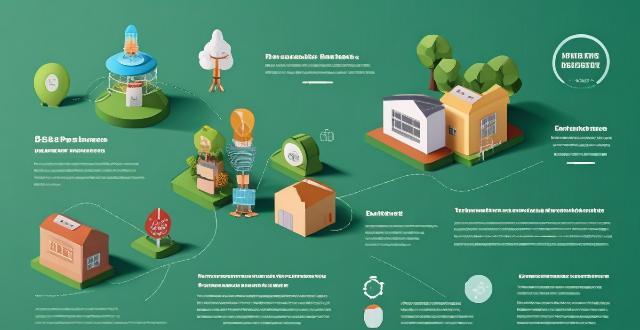Businesses can promote sustainability and raise environmental awareness among consumers by implementing green practices, engaging employees and stakeholders, and leveraging marketing and communications strategies. These include using renewable energy sources, managing waste responsibly, conserving water, offering sustainability workshops, forming green teams, collaborating with NGOs and suppliers, participating in community outreach, using eco-labels, developing green product lines, publishing sustainability reports, launching green social media campaigns, blogging about sustainability, and producing video content showcasing the company's commitment to sustainability.

Incorporating Sustainability Practices and Raising Environmental Awareness Among Consumers
Businesses have a significant role to play in promoting sustainability and raising environmental awareness among consumers. Here are some ways they can do so:
1. Implementing Green Practices
Renewable Energy Sources
- Using Solar Power: Installing solar panels on the company's premises or purchasing renewable energy credits from green energy suppliers.
- Wind Energy: Investing in wind farms or purchasing wind energy credits.
- Hydroelectric Power: Using hydroelectric power generated from water sources such as rivers and waterfalls.
Waste Management
- Recycling Programs: Implementing recycling programs for paper, plastic, glass, and other materials used in the office or production process.
- Composting: Starting composting programs for organic waste generated by the business, such as food scraps and yard waste.
- Reducing Packaging: Minimizing packaging materials used in products, opting for biodegradable or recyclable options where possible.
Water Conservation
- Fixing Leaks: Promptly repairing any leaks in pipes, faucets, or toilets to conserve water.
- Low-Flow Fixtures: Installing low-flow fixtures such as showerheads, faucets, and toilets to reduce water usage.
- Rainwater Harvesting: Collecting rainwater for irrigation or other non-potable uses.
2. Engaging Employees and Stakeholders
Training and Education
- Sustainability Workshops: Offering workshops on sustainability topics such as energy conservation, waste reduction, and water conservation.
- Green Teams: Forming employee groups focused on identifying areas where the business can improve its sustainability practices.
- Incentives for Green Actions: Providing rewards or recognition for employees who actively participate in sustainability initiatives.
Partnerships and Collaborations
- Collaborating with NGOs: Partnering with non-governmental organizations (NGOs) that focus on environmental issues to support their causes and raise awareness among employees.
- Supplier Engagement: Working closely with suppliers to ensure they adhere to sustainable practices throughout their supply chain.
- Community Outreach: Participating in local events and initiatives that promote environmental protection and sustainability.
3. Marketing and Communications
Green Marketing Strategies
- Eco-Labeling: Using eco-labels on products to indicate their environmental benefits, such as being made from recycled materials or having reduced carbon emissions during production.
- Green Product Lines: Developing and promoting product lines that are designed with sustainability in mind, using eco-friendly materials and processes.
- Sustainability Reporting: Publishing annual sustainability reports detailing the company's progress towards meeting its environmental goals.
Social Media and Online Presence
- Green Social Media Campaigns: Launching social media campaigns focused on environmental issues, encouraging followers to take action and share information about sustainability.
- Blogging About Sustainability: Writing blog posts about the company's sustainability efforts, successes, challenges, and future plans.
- Video Content: Producing videos showcasing the company's commitment to sustainability, including interviews with employees involved in green initiatives and behind-the-scenes looks at sustainable practices in action.